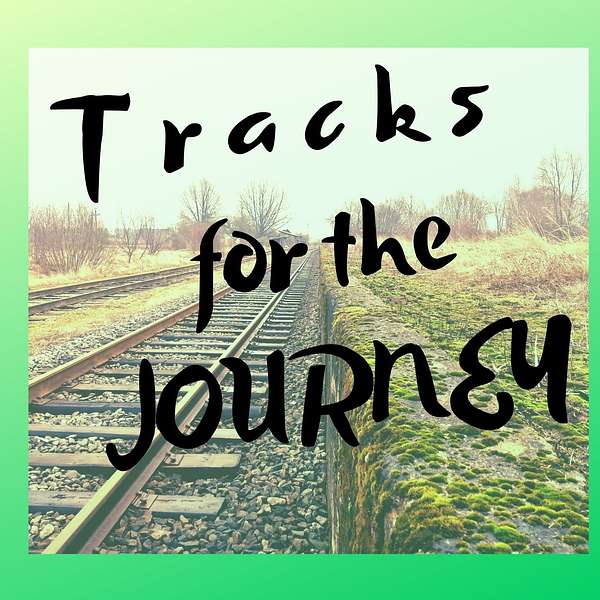
Tracks for the Journey
Tracks for the Journey will improve your well-being with practical insight and inspiration from progressive Christian spirituality, positive psychology, and justice ethics. Your host is Dr. Larry Payne, a minister, chaplain, and counselor with more than 45 years experience helping people with discoveries on their journey of life. He believes well-being is founded on balanced self-awareness, quality relationships, and active spirituality. Access all the resources of the Network at www.tracksforthejourney.com.
Tracks for the Journey
Creating a Climate Comfort Zone
The climate is acting crazy but we don’t need to do the same! The climate crisis is not a future threat but upon us now. The effects of catastrophic events have become as destructive to emotional health as to the environment. In this episode I explore ecotheology that leads to tangible actions each of us can take as stewards of the Earth. Join me and Pope Francis as we seek a new climate comfort zone. Sections include:
Our climate crisis
Ecotheology for stewards of the Earth
Act Now in practical ways
The prayer of Pope Francis
CITED
David Gushee, Introducing Christian Ethics. Front Edge Publishing, 2022.
United Nations Act Now program. https://actnow.aworld.org/
Learn about the TRACKS EXPRESS Newsletter
Subscribe to the TRACKS EXPRESS newsletter and find more resources for well-being at https://www.tracksforthejourney.com
Enjoy the Youtube Channel at https://www.youtube.com/@tracksforthejourney77
Life has changed here on The Bright Star farm in west Texas. A few months ago, I purchased solar panels for the house. Each month they generate hundreds of kilowatts of non-polluting power. My gasoline lawnmower was retired for an electric one. My electric trimmer tackles the weeds just fine, too. Why have I made these changes? Because our planet Earth is in a red zone of unprecedented climate change that will affect every creature for centuries to come.
The climate crisis is not in the future. It is our reality today across the globe. July 2023 was the hottest month ever recorded. Sea temperatures are at the highest seasonal mark ever recorded. The past decade was the warmest in 125,000 years. Carbon dioxide levels are higher than at anytime in the past two million years. All this is the result of greenhouse gases from modern human society.
The global effects are already enormous. Billion-dollar natural disasters are common worldwide as hurricanes, wildfires, droughts, and crop failures exceed anything on record. And Americas have not had anything like the famine, natural disasters, and economic failure which have affected Africa, Asia, and Europe.
Our emotional health as individuals and as a society is at risk as well. Trauma from disaster events and economic hardship tears apart emotional well-being. The foundational stress on society brings polarization and dysfunction for basic government services. Looking at conflict across the globe we might coin the phrase, “Hurting nations hurt nations.” The bottom line is that the climate crisis is reducing quality of life for all of us.
Progressive Christian theology reclaims Biblical teaching that the earth and all creatures are connected. Psalm 24 says, “The earth is the Lord’s,” while the Genesis story grants humankind a steward role, like a gardener. The Great Commandment calls us to “love our neighbor,” with the application that our neighbor is a global, ecological community that requires ecological care and sustainability that stretches far into the future. Ethicist David Gushee writes, “The texts say that God has graciously entrusted creation to our care… it also says that we are responsible to offer creation back to God through our careful service.” [161]
In 2022 Pope Francis of the Roman Catholic church, Patriarch Barthlomew of the Eastern Orthodox church, and the Anglican Archbishop Welby issued a joint declaration, the first time in history for such a shared statement. They wrote, “These crises present us with a choice. We are in a unique position either to address them with shortsightedness and profiteering or seize this as an opportunity for conversion and transformation… Caring for God’s creation is a spiritual commission requiring a response of commitment. This is a critical moment. Our children’s future and the future of our common home depend on it.”
What can you do? The reports are clear that what has happened will take decades to reverse. But humanity can slow the rate of change by reducing the pollutants being released by our industries, fuels, and agriculture. We can support national policies implementing the Paris Climate Agreement. We can pressure corporations to be climate positive with net-zero emissions. Even more, the UN ActNow effort highlights 10 actions anyone can take today. The top five are: drive less, use less energy at home, eat plant-based foods, recycle/reduce/repair/repurpose goods, and speak up for change. There is much more to learn and do on the ActNow app. It guides toward a sustainable climate by providing daily tips, impact trackers, habits, stories, and challenges. Your quality of life can be better now and tomorrow if we take action! You may even want to sell that beat-up, smoking lawn mower or gas-guzzling SUV to help your corner of the planet.
I conclude with the prayer of Pope Francis from the encyclical on the subject. He prayed,
“God of love, show us our place in this world
as channels of your love
for all the creatures of this earth,
for not one of them is forgotten in your sight.
Enlighten those who possess power and money
that they may avoid the sin of indifference,
that they may love the common good, advance the weak,
and care for this world in which we live.”
Now is the time for action. On your journey to well-being, let’s express faith and love to care for our families, our future, and our planet.
CITED
Stephanie Safdie, Climate Change in 2023: Where Do We Stand? https://greenly.earth/en-us/blog/ecology-news/climate-change-in-2022-where-do-we-stand
David Gushee, Introducing Christian Ethics. Front Edge Publishing, 2022.
https://actnow.aworld.org/
https://www.un.org/en/actnow/
https://press.vatican.va/content/salastampa/it/bollettino/pubblico/2021/09/07/0543/01167.html